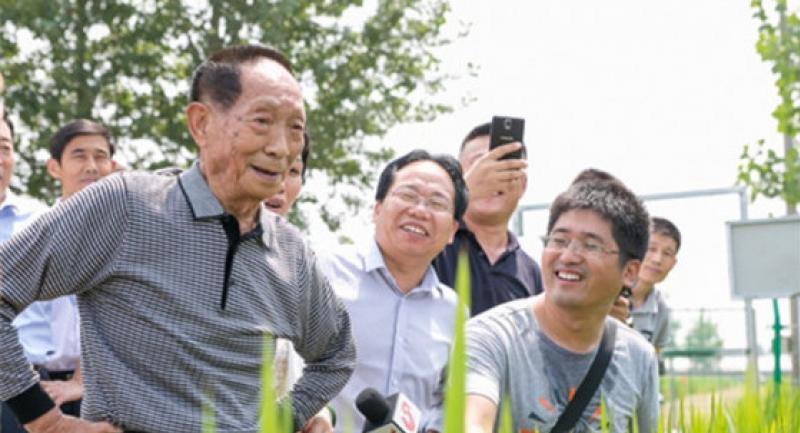Chinese scientist, 86, aims to revolutionise rice cultivation

DEVELOPING a new crop strain is time-consuming. But that doesn’t worry renowned Chinese rice scientist Yuan Longping, 86.
He has set his sights on his next accomplishment, the development of a variety of seawater rice for full commercial production in five years.
Yuan said it took time for this kind of revolutionary development of a new agricultural species to become full-fledged. It will take three years to develop a breed that has commercial value, and five years for it to be ready for the mass market. And to make it popular in China’s tidal-flat areas and saline-alkali lands, it could take about 10 years.
He told China Daily in a written reply that by that time, a rice strain grown by his research team would yield up to 4.5 tonnes per hectare, around 60 per cent of the yield from regular paddy fields.
Now and then, here and there across Asia, small news items appear about the discovery of some wild rice grown in briny swamps, potentially resistant to diseases and with no need for fertiliser. But successful development of such discoveries into commercial crops has never hit the headlines. So, for Yuan, it’s never too late to start his own quest for the glory.
China has plenty of saline-alkaline wasteland that could be put to use as the country’s arable land is sparse, he said, adding that more than 13 million hectares of such wasteland could potentially be used for sea-rice farming.
If such land were fully utilised, he said, China could reap an additional 50 million tonnes of grain a year.
Under Yuan’s directorship, a sea-rice research-and-development centre will be built in Licang district of Qingdao, Shandong province, where his team will use molecular breeding technologies to develop a rice strain with high photosynthetic efficiency and yield.
With a seed fund of 100 million yuan (Bt517 million), scientists will begin experiments on 2 hectares of saline-alkaline marshland just north of Jiaozhou Bay next April, and expect to reap their first harvest in the autumn.
Once the 2-billion-yuan R&D centre is fully built, Yuan’s team will start planting a sea-rice species in 1.33 million hectares of saline-alkaline soil along the coast.
Seawater rice seeds and planting techniques could also be exported to countries in Southeast Asia, which has a total of 20 million hectares of saline-alkaline soil, Yuan said. “Our Qingdao centre is likely to help Southeast Asia raise its yearly rice production by 20 million tonnes,” he said.
